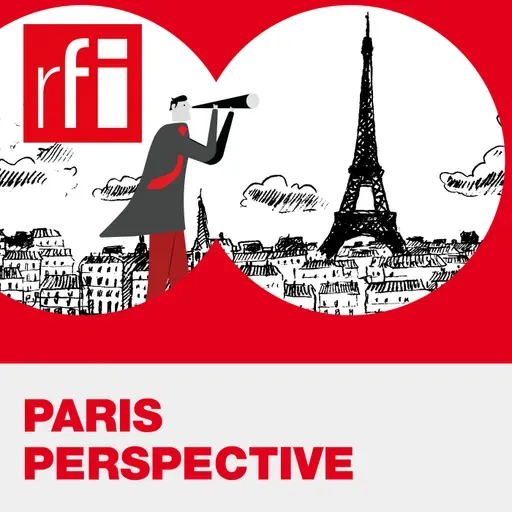
Paris Perspective #38: Cryptocurrency and the Web3 revolution – Raphaël Bloch
Paris Perspective
In this edition of Paris Perspective, we delve into the roller-coaster world of cryptocurrencies, the Wild West of the Web3 revolution, and ask what we can expect in the brave new world of unregulated trading in virtual money.
Last year was a tough one for cryptocurrencies.
Looking at how decentralised financial markets performed over the last 12 months was like watching the electrocardiogram of a patient being treated for amphetamine addiction.
The past year witnessed the collapse of seven cryptocurrency platforms, the most notorious leading to the bankruptcy of FTX and the arrest of its 30-year-old founder and CEO, Sam Bankman-Fried.
And there's the problem of getting your head around how cryptocurrencies work.
Without going into the nuts and bolts of the techniques that allow people to buy, sell or trade virtual cash online – the bottom line is that, unlike traditional currencies that are underwritten by national governments, cryptos circulate without a monetary authority or central bank.
Casino Digitale: The crypto El DoradoFor Raphaël Bloch, co-founder and editor-in-chief of “The Big Whale,” a Paris-based publication dedicated to decrypting cryptos, these are exciting times, especially for the post-Millennial generation who never knew a world without the internet.
Bloch and magazine co-founder Grégory Raymond believe people need to be enabled to understand what's happening in the digital world.
"Web3 is a big subject. We're talking about Bitcoin, non-fungible tokens (NFTs) and blockchains."
OK. Clear as crystal so far?
- Spotlight on France: Senegalese riflemen, cryptocurrency woes, Napoleon III
Again, without going into the nitty-gritty of how these new financial tools actually function – as there are plenty of websites out there that can explain it better than I – looking into the world of crypto is reminiscent of Las Vegas: casinos with distinct, non-transferable chips, serenading gamblers into competing establishments in a desert city that sprung out of nowhere, exploiting unregulated gambling laws.
Surely that is a fair comparison?
"For six or seven years," says Bloch, "that was the case, going back to 2016 or 2017.
"But now, it's not a casino or Las Vegas." Cryptocurrencies do create a new space with no rules, but countries and governments are working on legislation.
"You also have legitimate investors and start-up companies in Europe – you have a lot of unicorns. It's not a casino any more."
2022: Annus horribilus for cryptocurrencyYet 2022 underlined that investing in cryptos does not guarantee success for everyone.
When FTX hit a brick wall with liquidity issues in November 2022 and subsequently collapsed, there were consequences for all the 22,000 cryptos in circulation. Values plummeted.
But that was because "FTX was a scam," Bloch explains. "It had an impact on the market, but that was only because of one man's fraud.
"Obviously, it had an impact on other companies, but people know that it was just a matter of fraud. They didn't leave the market, they just sold part of their investments.
"And in the next two or three years, we're going to see a bull market again," Bloch asserts.
Who can you trust?So is there a personality profile of people who "roll the dice" at the crypto table?
"We have almost 20,000 subscribers," says the co-founder of The Big Whale.
"It's mostly the young generation – under 35. But it's also white collar people who want to invest their money in the crypto ecosystem and in Web3 technology."
It's mostly men, but Bloch says more women are getting involved.
However, with the collapse on seven cryptos in 2022 and the industry still reeling from the ripple effect on the unregulated market environment, any newcomer would be forgiven for asking a very simple question: Who can you trust?
"It's really good question. We know that in the crypto space, it's really hard to know who you can rely on. There are so many companies that are telling people on Twitter and social networks that they shouldn't miss 'the next big thing' and that's why we launched The Big Whale – not to be a sheriff in the Far-West, but to give neutral and accurate info on projects, exchanges and companies," Bloch explains.
Nothing to do with 'Moby Dick'So what is the relevance of naming his company "The Big Whale"? Anything to do with Captain Ahab and an elusive, white cetacean as written by Herman Melville?
"No," Bloch laughs.
"We decided to choose 'The Big Whale' for several reasons. The first is that we usually hear that Web3 is like a big ocean of information and people want to understand what's going on in this big ocean ... and because we want to play a big part in that ocean.
"The second is that a whale – in the crypto market – is like a big financial investor. So it's like a gimmick for crypto fans.
"The third one: a whale is a big, carbon-neutral organism – equal to a forest, something like 1,000 trees – so it outlines that Web3 needs to be more ecological," Bloch concludes.
It is quite easy to forget how far we have come since Web 1.0 in the 1990s and even the concept of personally uploading and streaming filmed material in a matter of seconds, only came to the fore in the last decade. So if Web3, blockchains and anything "non-fungible" seem like alien concepts today, it would appear that it's only a matter of time before they become a mainstream part of our daily lives.
Watch the full video here.
Written, produced and presented by David Coffey
Recorded and edited by Vincent Pora.
Raphaël Bloch is co-founder and editor-in-chief of “The Big Whale” – a Paris-based publication dedicated to cryptocurrency, blockchains and Web3 technology.